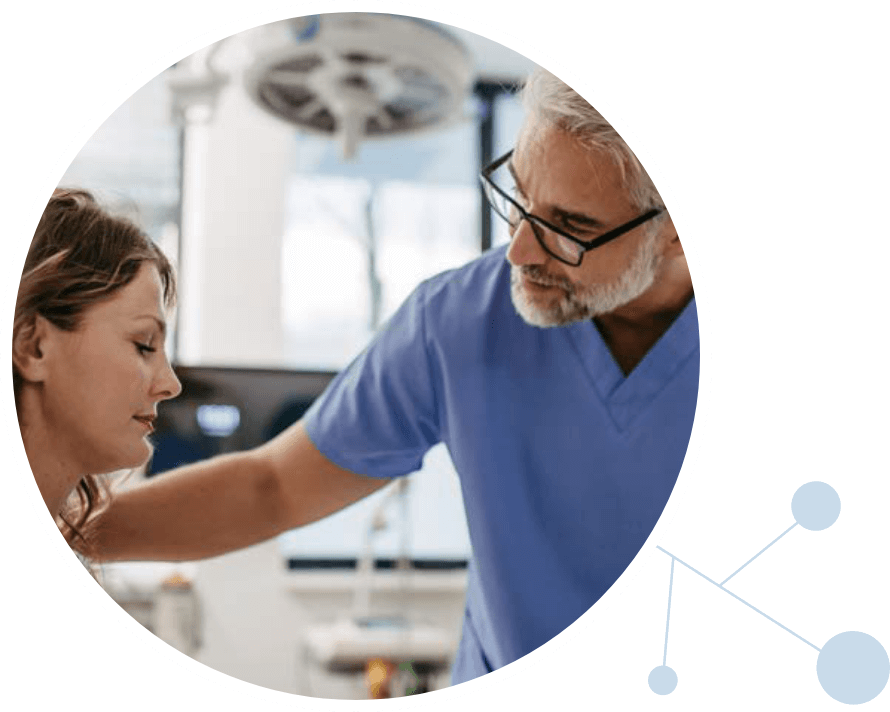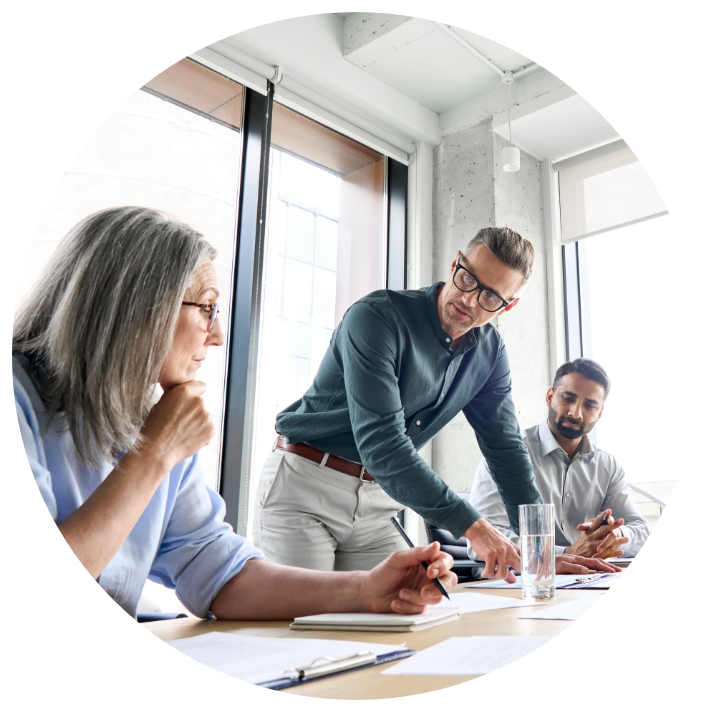Provider services
We offer healthcare providers a comprehensive and advanced portfolio of over 500 ready-to-order disease state testing solutions encompassing all major testing methodologies, including next-generation sequencing (NGS) and broad panel DNA and RNA testing, as well as a full complement of hematologic testing to meet your and your patients’ needs.
Biopharma partnerships
At NeoGenomics, we understand the needs of pharma and biotech, and we work closely with our partners to develop life-saving therapies. Our comprehensive suite of advanced multi-modal solutions and validated methodologies, along with a dedicated team of MDs, PhDs, and project managers, ensure optimized clinical outcomes, reduce timelines, and drive innovation.
Oncology data solutions
We understand the vital role that data play in precision oncology. Drawing upon one of the largest oncology databases with over 2 million unique patient profiles, we harness the power of this data to facilitate the discovery and development of new therapeutic options, support clinical trial matching, and assess therapy outcomes to deliver personalized patient care.
Our legacy
Cancer’s questions occupy every moment of our days. Why? Because we know that every minute we spend consumed by answers, might mean one more life saved. Since we started in 1999, we have grown to an inspiring team of 2,200 worldwide, spanning 13 locations across 2 continents, with more than 120 MDs and PhDs on our staff.
With an ever-expanding portfolio of solutions, each year we deliver over 1.7 million cancer-related tests, including more than 100,000 NGS tests, and we work with about 4,400 medical sites ─ providing answers to more than 500,000 patients.
Our leadership
Every member of the NeoGenomics team is devoted to our central mission: transforming the fight against cancer by advancing patient care ─ an ideal that starts with our leadership team.
Tony Zook
Chief Executive Officer
Read bio
Jeff Sherman
Chief Financial Officer
Read bio
Elizabeth Floegel
Chief Digital and Information Officer
Read bio
Alicia Olivo, Esq.
Executive Vice President, General Counsel & Business Development
Read bio
Warren Stone
President and Chief Operating Officer
Read bio
Beth Eastland
EVP of Enterprise Sales
Read bio
Gary Passman
Chief Culture Officer
Read bio
Kareem Saad
Head of Strategy and Transformation
Read bio
Andrew Lukowiak, PhD
Chief Innovation Officer
Read bio
Nathan Montgomery, MD, PhD
Vice President, Medical Services
Read bio
Clarence Cooper, Esq.
Vice President, Compliance & Privacy
Read bio
Our board of directors
Tony Zook
Chief Executive Officer
Read bio
Lynn A. Tetrault
Chair of the Board
Read bio
Dr. Marjorie Green
Board Member
Read bio
Neil Gunn
Board Member
Read bio
Alison L. Hannah, MD
Board Member
Read bio
Stephen Kanovsky
Board Member
Read bio
Michael A. Kelly
Board Member
Read bio
David Perez
Board Member
Read bio
Felicia Williams
Board Member
Read bio

Our vision
We are committed to becoming the world’s leader in oncology testing, a pharmaceutical partner in drug development, and an informatics partner providing uncompromising quality, exceptional service, and innovative solutions.

Our mission
Our mission is at the core of everything we do: We save lives by improving patient care.

Our values
We are more than just a lab. We are expert partners, focused on precision oncology. By putting humans at the heart of what we do, we discern the essential solutions that empower informed decisions that save lives and improve patient care. We embrace what works and innovate for the future, pushing the boundaries of innovation so that we can answer the questions of today and tomorrow. Why? Because our successes are measured by what matters most ─ the lives we impact.
Press releases
Dec. 15, 2025
Oct. 30, 2025
Oct. 28, 2025
Come meet us at the following events
No upcoming events

